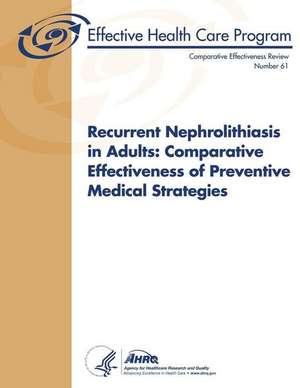Recurrent Nephrolithiasis in Adults
Autor U. S. Department of Heal Human Services, Agency for Healthcare Resea And Qualityen Limba Engleză Paperback
Preț: 159.24 lei
Preț vechi: 167.62 lei
-5% Nou
Puncte Express: 239
Preț estimativ în valută:
30.47€ • 32.58$ • 25.41£
30.47€ • 32.58$ • 25.41£
Carte disponibilă
Livrare economică 27 martie-10 aprilie
Preluare comenzi: 021 569.72.76
Specificații
ISBN-13: 9781483983776
ISBN-10: 1483983773
Pagini: 236
Dimensiuni: 216 x 280 x 13 mm
Greutate: 0.56 kg
Editura: CREATESPACE
ISBN-10: 1483983773
Pagini: 236
Dimensiuni: 216 x 280 x 13 mm
Greutate: 0.56 kg
Editura: CREATESPACE
